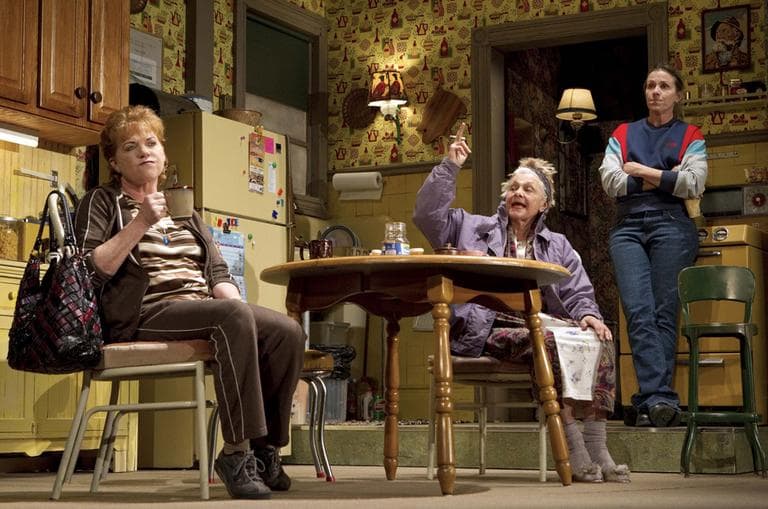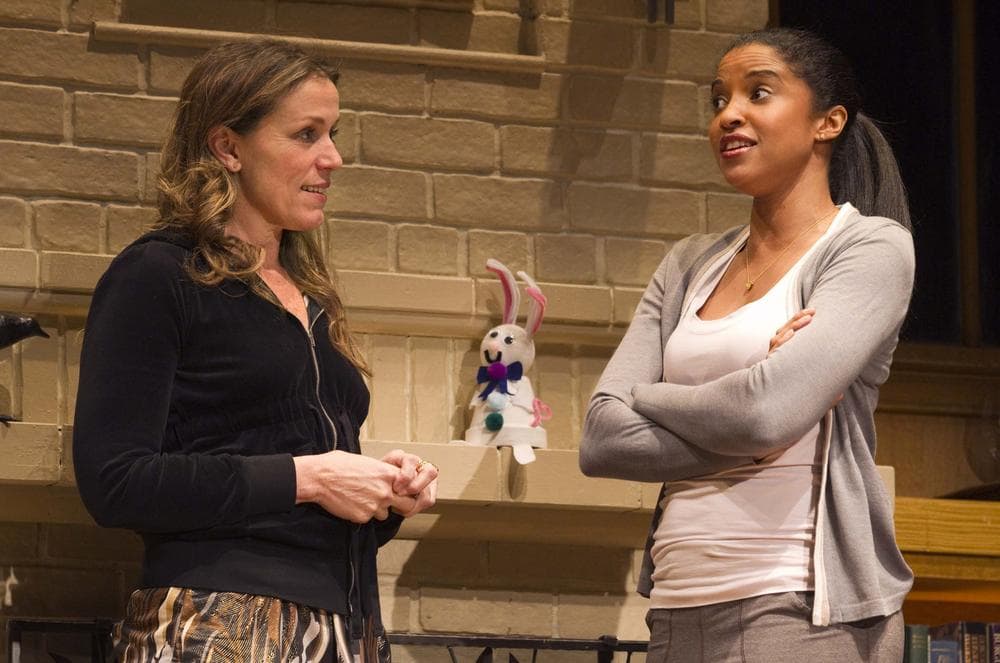Advertisement
Pulitzer Prize-Winning Playwright Returns To His South Boston Roots
Resume
Here & Now Guest:
Playwright David Lindsay-Abaire
What is a good person? It’s the underlying question in playwright David Lindsay-Abaire’s new play, “Good People.”
His play tells the story of Margie (Frances McDormand), a South Boston single mother struggling to hold on to a series of low-wage jobs while paying friends to care for her adult, mentally-disabled daughter.
In one scene, she talks to her old high school fling who blames her struggle on bad choices. She says it’s because she lost her car.
Why’d I lose my car? Because I missed a payment. Why’d I miss a payment? Because I had to pay a dentist instead. Why did I have to pay a dentist? Because I didn’t have insurance and I cracked
a tooth. And I ignored it for six months until and access formed. Because one night, I’d thought I’d save a little money and skip dinner. But I got hungry and snacked on a piece of candy brittle instead, and that is all it took. One piece of candy brittle …
Margie’s language is familiar territory for Lindsay-Abaire. He grew up in the Southie neighborhood of Boston, and at the age of 11 won a scholarship to a private school which helped launch him to career as a successful playwright in New York.
The phrase "he’s good people," or "she’s good people," is common for Southie, according to Lindsay-Abaire. “It usually describes the salt of the earth that people are good to be around and behave properly,” he said.

Over the course of the play, the saying’s meaning spins, and is used ironically. “The main thing isn’t whether the individuals are good or bad. I hope they’re human,” Lindsay-Abaire said.
Lindsay-Abaire says Margie isn’t based on any specific person, but her character is similar to many he knows.
“She’s someone who was born in the neighborhood, who has never left the neighborhood, who’s had trouble escaping her minimum-wage jobs and her circumstances, but continues to work as hard as she can in the face of extreme adversity,” he said.
He says he relates to Mike (Tate Donovan), Margie's high school fling who became a successful doctor.

Lindsay-Abaire, like Mike, left town and went to college. But Mike’s feeling toward the South Boston neighborhood is fairly ambivalent. Mike both romanticizes and denies his roots.
“Whereas I feel incredibly proud of being from Southie and feel that luck played every part in my trajectory out of the neighborhood,” Lindsay-Abaire said.
As a playwright, he wanted to address class — something that was inevitable in a play about South Boston.
“Knowing the people I know from the neighborhood, I do think there’s this American myth that anybody can accomplish anything if they work hard enough. And I don’t think that’s necessarily true.”
Individuals need luck, opportunity and life skills, Lindsay-Abaire said, in addition to hard work — to accomplish anything.
There’s a scene in the play in which Margie asks Mike if they’d still be together if Mike had never left the neighborhood.
“The comedy and the tensions come from how different these people are.”
Lindsay-Abaire says he still wonders what he’d be doing if he never left South Boston. A career as a playwright wouldn’t have been in the cards, he said.
Compiled by Meena Ramayee
This segment aired on March 22, 2011.